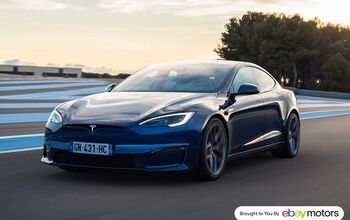Honda Exec: Chinese and Indian Automakers Could "Blow Up The Distribution Chain"
The prospect of US launches by Chinese and Indian auto brands like Tata and BYD have at least one of the established US-market players in a paranoid froth. Honda VP John Mendel revealed a few of the nightmare scenarios that keep him up at night to USA Today [UPDATE: more on Mendel’s fears at Automotive News [sub]]. One, inspired by BYD’s plans for a 2010 US launch without a distribution channel in place, is that newcomers could skip the dealer model altogether. Mendel worries that “warehouse stores or electronics stores” ( sound familiar?) could be used to cut dealers out of the loop, “blowing up” business-as-usual for US distribution strategy.
Mendel’s fear clearly owes something to the post-9/11 paranoia of asymmetrical warfare: a new enemy, exploiting its smaller size to wreak havoc on an already-fragile system. Happily for America and its fine car dealers, fears of such asymmetry are typically overplayed. An industry that lives and dies on volume isn’t likely to be dominated by a firm that rejects a large-scale, dedicated distribution network. A BYD could theoretically get a toehold by selling its EVs through some other retail chain, but there’s nothing in the history of the car game to suggest BYD could really become a Toyota-challenging global player (as it aims to) without securing a US dealer network.
Mendel’s second mania is based on a equally shrewd insight into the American psyche, specifically our love for all things disposable. Like his direct-marketing theory though, it takes the insight a little too far. The prospect of a US-market version of a Tata Nano has Mendel worried that Americans could become accustomed to the concept of a “disposable automobile,” to the detriment of established players like Honda. He quails:
If you’ve just spent a few thousand dollars on a car, and it needs repairs, maybe you won’t fix it. Maybe you’ll decide you want a new one in a different color, and just get another one.
Maybe. Or, maybe you’ll decide you’re tired of driving a Kei car and buy something that can go faster than 70 MPH. Besides, a US-market Nano would still cost well over $5,000, which is probably enough to discourage too much disposable car mania.
More by Edward Niedermeyer
Latest Car Reviews
Read moreLatest Product Reviews
Read moreRecent Comments
- Analoggrotto It's bad enough we have to read your endless Hyundai Kia Genesis shilling, we don't want to hear actually it too. We spend good money on speakers, headphones and amplifiers!
- Redapple2 Worthy of a book
- Pig_Iron This message is for Matthew Guy. I just want to say thank you for the photo article titled Tailgate Party: Ford Talks Truck Innovations. It was really interesting. I did not see on the home page and almost would have missed it. I think it should be posted like Corey's Cadillac series. 🙂
- Analoggrotto Hyundai GDI engines do not require such pathetic bandaids.
- Slavuta They rounded the back, which I don't like. And inside I don't like oval shapes


































Comments
Join the conversation
One problem any newfangled seller of automobiles faces is how to deal with the trade-in problem. I suppose they could simply sell all of their trades to CarMax or at auction though.
How wonderful wouldn't that be! Buy a car from anyone, anywhere, without having to worry about dealer this and dealer that. I can see American Honda, which is already stuck in idiotic contracts with politician sponsored (or was it the other way?) car dealers being a bit worried, though. For the rest of us, regulatory arbitrage is always a good thing, just as it was when the Japanese brands "circumvented" the UAW. As pertains to disposability, the more cars rely on rapidly changing and changeable electronics and software, the shorter their reasonably up to date shelf lives will become. And if necessary electronics becomes what's limiting cars' longevity, over engineering the mechanicals becomes simply a waste.